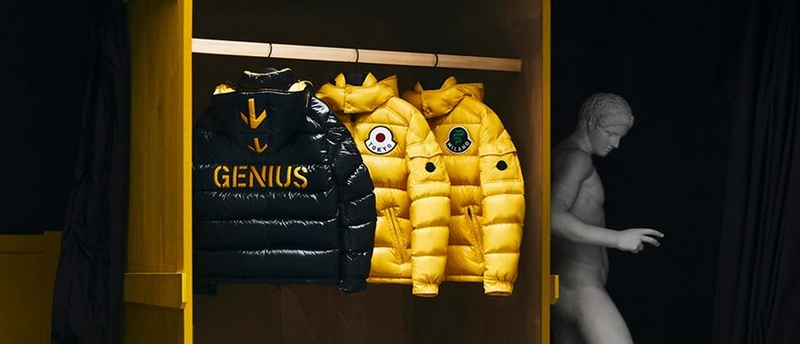
moncler genius; @moncler
The padded jacket is now as ubiquitous on high streets as cracked pavement slabs and Greggs. Billed as an effective way to stay in your duvet all day, it is, however, less forgiving when it comes to its ethical credentials. Many puffers are made from petroleum-based fabrics and filled with duck and goose down from dubious sources.
But alternatives are now appearing. One option for the outer shell is recycled polyester, which is used in jackets by EcoAlf and Katherine Hamnett. New York-based Colovos has made a jacket from water-resistant merino wool, and Gap uses discarded plastic bottles. Moncler last week launched a down jacket made from plant-based fabrics, and Pangaia features a jacket made with dried wildflowers and a biopolymer.
Yvonne Taylor, Peta’s director of corporate projects, said that many shoppers were “still unaware of the cruelty inherent in the down and feather industries”. Often the down used could be “gathered from geese, force fed to make foie gras. And [come] via the horrific practice of live plucking”, said sustainable fashion consultant Alice Wilby.
“Recent pressure from animal rights groups has forced the industry to audit farms and factories,” she explained. But “as with much of fashion, supply chains can be convoluted”. “80% of the industry’s down comes from China, which has a bad track record for animal rights.”
North Face and Patagonia prohibit force feeding and live plucking of birds. Recycled down such as Re:Down, as used by Everlane and Arket, consists of “down and feathers extracted from post-consumer goods”.
Wilby said that the environmental damage caused by the polyester outer layer of padded jackets was also underestimated by consumers. When the material is washed, it sheds microplastics which are released into the oceans, harming marine wildlife. “Synthetic material presents a huge environmental problem as it will potentially take hundreds of years to degrade,” she said.
Recycled polyester is preferable to virgin polyester. But it will still shed microfibres, and Wilby recommends restricting how often you wash your jacket or using a laundry bag to catch microfibres.
If the ethical brands succeed, there is a huge market in which they can flourish. A search on Asos yields 867 results, while Moncler’s Bramant puffer jacket is the hottest men’s product this quarter, according to Lyst.
guardian.co.uk © Guardian News & Media Limited 2010
Published via the Guardian News Feed plugin for WordPress.

